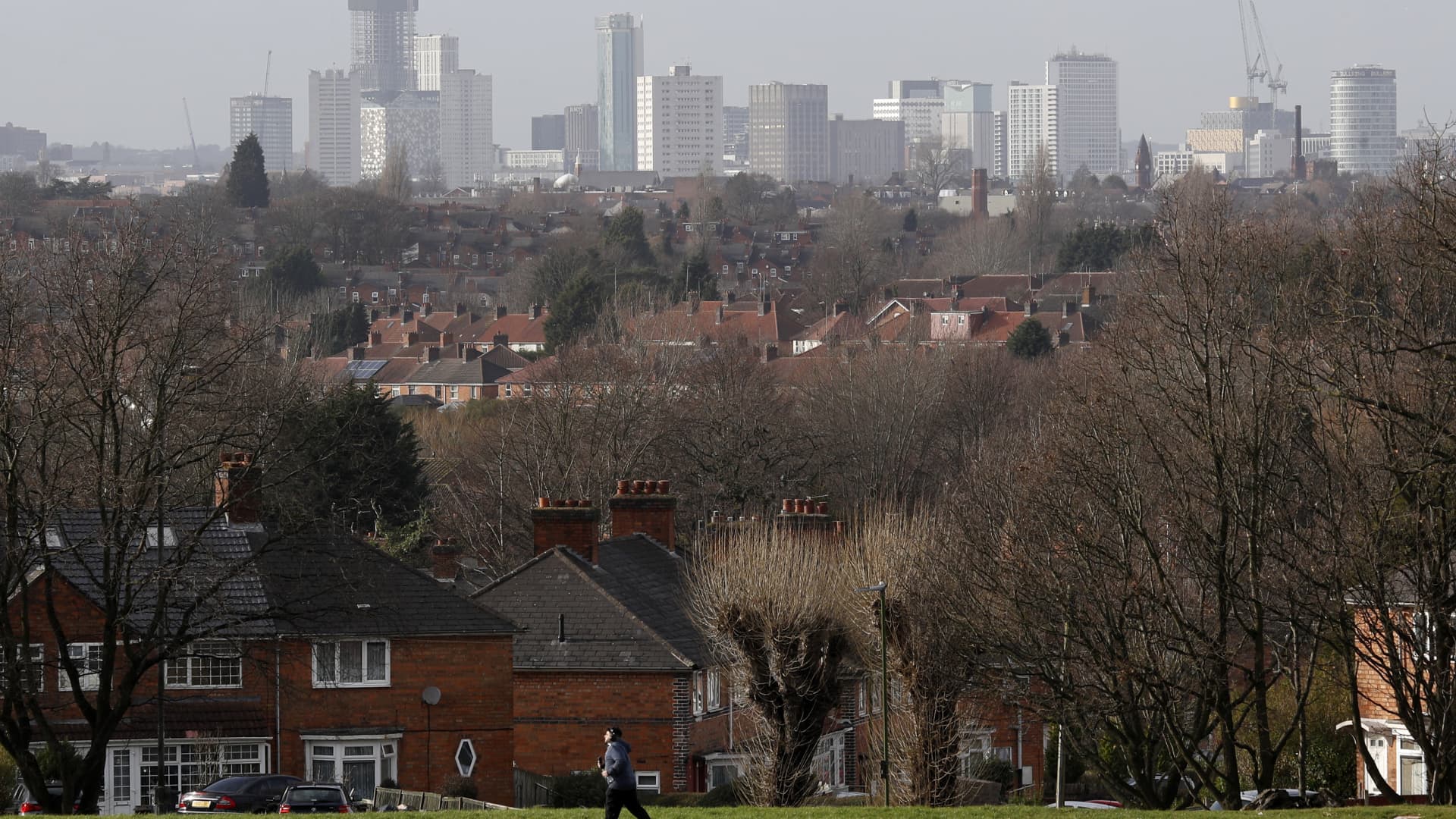IMF downgrades UK growth forecast, predicting only economic decline among G-7 countries

A man exercises in a park overlooking the city center of Birmingham, U.K., on Thursday, Jan. 28, 2021.
Bloomberg | Bloomberg | Getty Images
LONDON — The International Monetary Fund downgraded its outlook for the U.K. economy even as it turns more optimistic on global growth.
Its new 2023 forecast on Monday evening also sees the U.K. as the only “advanced economy” to contract, by 0.6%. This is 0.9 percentage points lower than its previous estimate.
It is also worse than its outlook for Russia, where it forecasts a 0.3% decline.
IMF Head of Research Pierre-Olivier Gourinchas said there were three main reasons: The U.K.’s high exposure to natural gas, with higher market prices being passed on to consumers; employment remaining below its pre-pandemic level despite a very tight labor market, resulting in less production; and sharp monetary tightening.
However, the group did revise its 2024 outlook for the U.K. upward, from an expansion of 0.6% to 0.9%.
The IMF forecasts 1.4% growth in the U.S. in 2023, 0.7% growth in the euro area, 1.8% growth in Japan and 1.5% growth in Canada.
Meanwhile, it hiked its outlook for the global economy by 0.2 percentage points from its last report in October, to 2.9%.
That is still weak by historical standards, but factors including China’s Covid-19 reopening, a robust labor market and household consumption in the U.S. and better-than-expected adaptation to the energy crisis in Europe have brightened the picture, the IMF says.
But it said that in the U.K. as well as other European countries, persistently high inflation and tighter fiscal and monetary policies would weigh on household budgets.
Preliminary figures out Tuesday indicated the euro zone avoided a contraction in the fourth quarter of 2022, eking out 0.1% growth versus 0.3% growth in the third quarter, though some still believe the bloc will enter a recession.
U.K. GDP is estimated to have fallen 0.3% in the third quarter, and fourth quarter results due Feb. 10 are widely expected to show another decline.
Pessimistic projections for the U.K. from teams at Goldman Sachs and KPMG have also flagged the squeeze on disposable income as a key concern, as well as a potential deterioration of the labor market this year.
The U.K. faces challenges including high long-term sickness rates and a reduction in trade due to Brexit.
Since the IMF last prepared a forecast, the U.K. has also been through the turmoil of former Prime Minister Liz Truss’ budget, which was pitched as a radical plan to boost growth but was quickly reversed after sparking chaos in financial markets.
In November, the Bank of England said it expected a 1.5% decline in U.K. GDP during 2023, though it has since said a slightly improved inflation outlook and short-term fiscal support packages would improve the picture. It is likely to provide an update in its monetary policy announcement on Thursday.
Too harsh?
Paul Johnson, director of research group the Institute for Fiscal Studies, said it was “hard to see what was driving” the IMF’s U.K. forecast, and why it had “deteriorated since Autumn.”
He added the year would be “tough” and see a fall in living standards and a stagnant economy, but there was little new in the IMF update.
Sophie Lund-Yates, lead equity analyst at Hargreaves Lansdown, said in a note that alongside a labor shortage and over-exposure to energy retail prices, the U.K.’s unique challenges included prohibitively high mortgage rates.
“There’s a chance the U.K. could muster a better performance than the IMF is predicting, given upgrades to expectations from other bodies in recent months,” she said.
“The market will remain very sensitive to interest rate and inflation readings until we have a clear path out of the stagnation.”
British Finance Minister Jeremy Hunt responded to the IMF forecast: “Short-term challenges should not obscure our long-term prospects. The UK outperformed many forecasts last year, and if we stick to our plan to halve inflation, the UK is still predicted to grow faster than Germany and Japan over the coming years.”
Last week he gave a speech to tech bosses urging more optimism on the U.K. economy.









